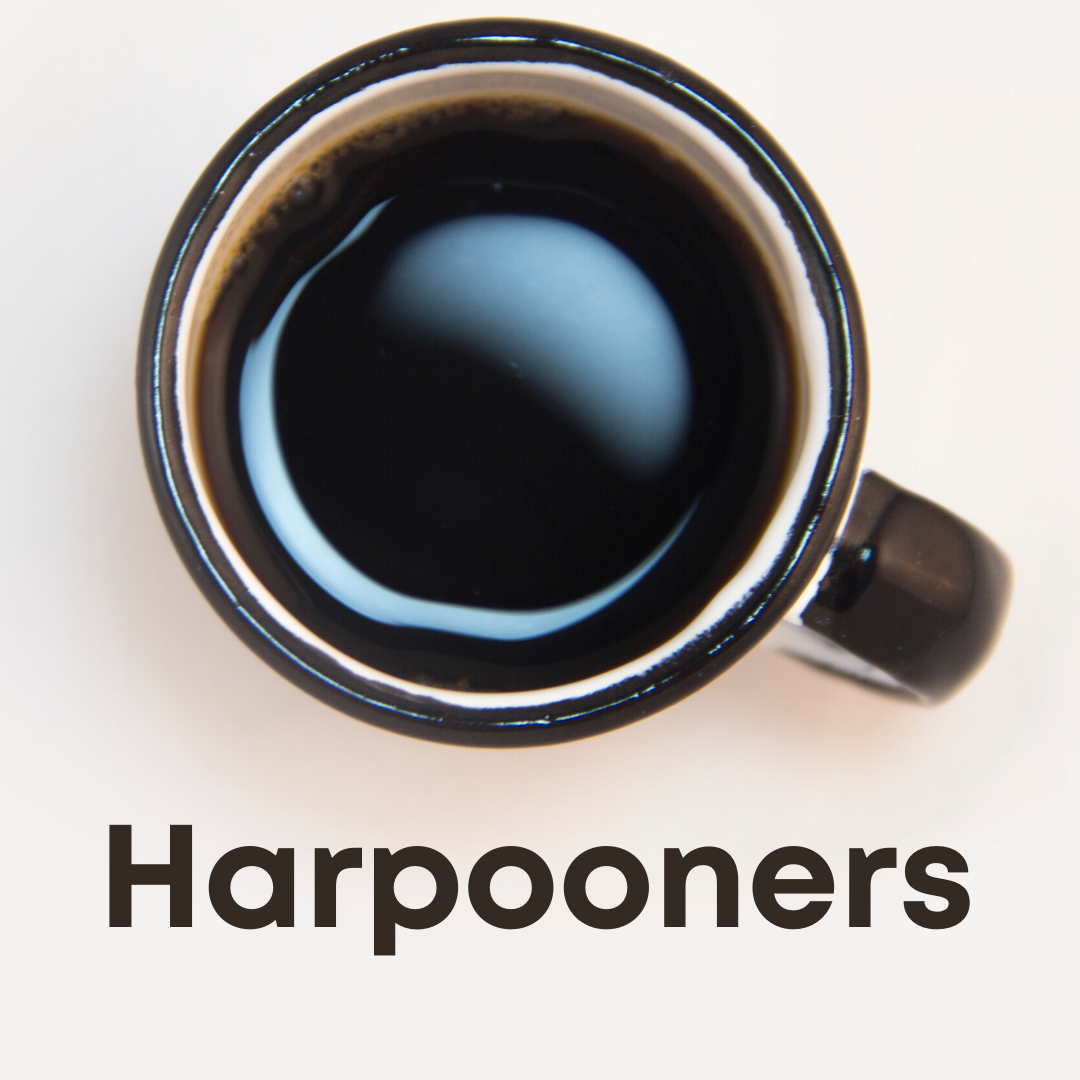
Harpooners
Since my boys? little league days have ended, I've really missed coaching baseball. Throwing batting practice, hitting infield, the connections with the players and their parents, the excitement of game days in the springtime - I loved all of it. I was a pretty good coach, but the one thing I couldn't ever get the kids to do, even under the scorching Houston sun, was to keep drinking water. If you wait until you?re thirsty, I?d tell them, it's too late; you?re likely already dehydrated and your performance has already started to suffer. The kids never listened, but then again, to tell the truth, neither did I. Unless we?re very intentional about it, most of us rely on the process of getting thirsty before we drink water. Last month, I drove to LA with my older son, Hank. As we moved westward across the long, arid landscapes of West Texas, New Mexico, and Arizona, we kept seeing signs along the highway like this: ?Next Gas, 100 miles.? Even without the helpful reminders, I found myself glancing down at the gas gauge frequently. A trek through the desert tends to focus your mind on the status of your fuel. As I look ahead at each approaching week and the things I need to do, I typically start searching for where my breaks will be. Where am I going to be thirsty for restoration? Where am I likely to be running on empty? And I then prudently begin to build in some space where I foresee I can get a breather to replenish my spirit, refuel my body, and rest my mind a bit. I plan it, even calendar it, then guess what happens? It almost never works out. The ?have to do?s? invariably expand, crowding out the diligently reserved, recharging space. When I began work at South Main, I read, The Contemplative Pastor, by Eugene Peterson. Terrific book. In it, Peterson wrote about a posture, a mindset, a way we might think of ourselves in the context of better caring for ourselves so we can better care for one another. Here's the passage: In Herman Melville?s Moby Dick, there's a turbulent scene in which a whaleboat scuds across a frothing ocean in pursuit of the great, white whale. The sailors are laboring fiercely, every muscle taut, all attention and energy concentrated on the task. The cosmic conflict between good and evil joined; chaotic sea and demonic sea monster versus the morally outraged man, Captain Ahab. In this boat, however, there's one man who does nothing. He doesn't hold an oar; he doesn't perspire; he doesn't shout. He is languid in the crash and the cursing. This man is the harpooner, quiet and poised, waiting. And then there's this sentence: ?To insure the greatest efficiency in the dart, the harpooners of this world must start to their feet out of idleness, and not out of toil.? ?In this world, noise is inevitable, and immense energy is expended. But if there is no harpooner in the boat, there will be no proper finish to the chase. Or if the harpooner is exhausted, having abandoned his assignment and become an oarsman, he will not be ready and accurate when it's time to throw his javelin. Somehow it always seems more compelling to assume the work of the oarsman, laboring mightily in a moral cause, throwing our energy into a fray we know has immortal consequence?There is, though, other important work to do. Someone must throw the dart. Some must be harpooners. Drink some more water. Re-fuel your tanks. Be rigid about keeping something in reserve. Sit still, harpoon in hand. Ready. Quiet. Poised. Don't exhaust yourself. At least every once in a while, act out of idleness, not out of toil. God ? Help me to drink before I thirst. To refuel long before nearing ?E.? To confidently hew to the duty to put down work in the same way I feel the need to take it up. To realize my own sense of indispensability is, in almost every case, mythical. To refuse to measure my self-worth on how busy I am. To see that stillness, not speed, best aims the archer's arrow. To placidly take on the poised mindset of the harpooner, rising, when needed, to meet what's ahead, not out of bustle and toil, but in slow contemplation, with a quietly idling mind. ?Greg Funderburk





